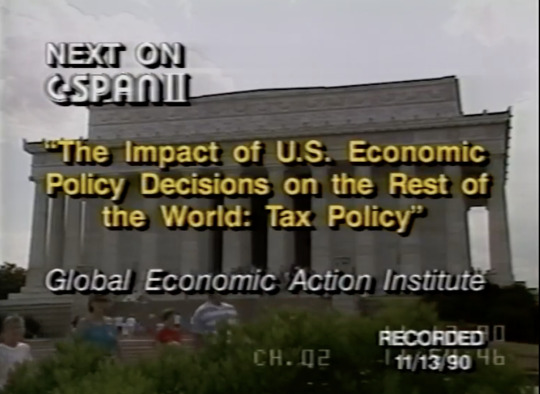#geai
Text




SPRING / PRINTEMPS
#spring#printemps#fleurs#flowers#butterfly#peonia#pivoines#jacinthe#jonquille#daffodils#mimosa#coquelicot#flower dress#dress#illustration#crown#couronne#geai#oiseau#bird#digital art#art digital#photoshop#renoncule#coeur de marie#pavot#poppy flower#lilas#lilax#robe à fleurs
145 notes
·
View notes
Text
Qu'est-ce que c'est que ce Wasô ? 😁 🤣
Source: Gork
Bel après-midi 👋
#funny videos#humour du jour#cute dog#humour#geai#funny animals#cute birds#animaux#chien#drôle#cute animals#oiseau#belaprèsmidi#fidjie fidjie
66 notes
·
View notes
Text

Petite aquarelle de Geai des Chênes. 🌿
#illustration#dessin#drawing#art#drawn#aquarelle#watercolor#animals#animaux#oiseau#geai#geaideschênes#arbre#illustrationanimaux#frenchartist
3 notes
·
View notes
Photo

2022 Paris
#2022#Paris#Garden#Bird#Geai#photography#color photography#original photographers#shotoniphone#Iphone#iphoneography#Apple ProRaw#Pierre Wayser
16 notes
·
View notes
Photo

Mister Jay looking for food !
4 notes
·
View notes
Text
L'étonnante diversité d'animaux venant boire à une fontaine [vidéo]
Nouvel article publié sur https://www.2tout2rien.fr/letonnante-diversite-danimaux-venant-boire-a-une-fontaine-video/
L'étonnante diversité d'animaux venant boire à une fontaine [vidéo]

#boire#buse#Californie#chardonneret#colibri#couleuvre#coyote#eau#fontaine#geai#lievre#mouffette#oiseau#opossum#rapace#raton laveur#roselin#serpent#time lapse#vidéo#vidfirst#animaux#imxok
0 notes
Text
Howard Wiarda on the Moonie-Organized “Global Economic Action Institute” (GEAI)
Howard J. Wiarda was an academic, associated with both Woodrow Wilson International Center for Scholars and the Center for Strategic and International Studies (CSIS)

In the mid-1980s, I contracted with the Global Economic Action Institute (GEAI) to edit a book on development successes and democracy in the Third World. The main case studies were Costa Rica, Hungary, Ivory Coast, and Malaysia, so the project required me to acquire expertise on three countries that I didn't know well (Hungary, Ivory Coast, and Malaysia; Costa Rica I already knew well) — countries whose development I have followed closely over the years. I was not a completely independent actor in doing this small book: GEAI had given me a partially completed manuscript drafted by some of its own personnel and advisers that had a strongly pro-democracy, pro-free market slant. The draft was way too strident and conservative for me, but I could certainly support a moderate democracy/free market position. My assignment from GEAI was to take this draft, rewrite it, and convert it into prose that academics, think tankers, and policy experts could support. A handsome honorarium was involved.
So, I took the draft, started from word one to rewrite, toned down the more ideological language of the original manuscript, and introduced a tone into the report that was social-scientific and academic. The report forced me to do considerable new research; it also got me thinking seriously not just about analyzing development in the Third World but, for the first time in a policy sense, how to achieve development. Some twenty years later, I would return to these themes in my own, single-authored book on the developing nations where the main subject was what works in development and what doesn't.

I was about halfway through the project before I came to realize that GEAI was a front for the Rev. Sun Myung Moon's Unification Church. This was a "Moonie" project, and I was working for the "Moonie Church." I hadn't realized this before since all the officials I'd dealt with at GEAI, as well as the individuals who'd done the first draft, were all Americans. What to do? Rev. Moon, he of the karate chop delivery, the mass marriages (in the thousands in a football stadium) of his followers, and some truly bizarre religious and political beliefs, was not my favorite fellow. I didn't want to sell out my academic reputation; on the other hand, the money was good, and I had been assured of complete academic freedom. So, I finished the project. It turned out to be a respectable monograph and was published by GEAI, even though, fearing for my reputation from being associated with the Moonies, I asked that my name not be listed as the author on the front cover.
In the course of doing this project, I got invited to several Moonie events in the Washington area. One was a large, annual Moonie reception for all its friends and hangers-on at the luxurious Marriott Hotel in downtown Washington. Iêda and I were amazed to find over 2,000 people present, the cream of Washington society and politics. We were also invited to other Washington Institute (another front for the Unification Church) sponsored seminars and policy forums; there I was surprised to find such luminaries as intellectual Richard Rubenstein, former Kissinger aide Hal Sonnenfeldt, philosopher and editor Morton Kaplan, and political boy wonder, then head of the Republican Young Americans for Freedom, Ralph Reed. All of these were friends or acquaintances of mine from Washington policy circles; I was as surprised to find them at a Moonie event as they were to find me. Rev. Moon had certainly bought himself access and influence in Washington; I assumed that, like me, they were all on the Unification Church payroll.
Related
Fishing for Respectability - on the Unification Church’s “Global Economic Action Institute”
C-Span videos of Global Economic Action Institute conferences and panels - one of these videos ("Foreign Trade and Domestic Subsidy Policy") features Most Durst
Moon on why he founded the Global Economic Action Institute:
I founded the Global Economic Action Institute to help distribute and re-invest inactive, or "sleeping" money to make it work for the world. A world-level bank is necessary to go beyond the boundaries of any one nation. This bank will not lend to individuals, but only to nations. The world is coming into unity, which means that independent governments will merge into one to be more operable on a global scale. Only global thinking and institutions can solve the world's economic problems.
The Imperial Ghost in the Neoliberal Machine (Figuring the CIA)
Emperor of the Universe video.
#front organizations#front groups#economy#neoliberalism#politics#free market#geai#unification church#moonies#unification church in the untied states of america#unification church in the united states of america#unification church in usa#u.s. politics#academia#ffwpu#family federation for world peace and unification#center for strategic and international studies#Global Economic Action Institute
1 note
·
View note
Photo

Geai marais AUDUBON Dominique Dubois souvenirs #souvenir #oiseau#oiseaux #oiseausauvage #geai #geaideschênes #nature#naturephotography #naturelovers #naturephoto #couëron #saintetiennedemontluc #marais#maraisaudubon #loireatlantique #igersnature https://www.instagram.com/p/Coo0m4VN7UN/?igshid=NGJjMDIxMWI=
#souvenir#oiseau#oiseaux#oiseausauvage#geai#geaideschênes#nature#naturephotography#naturelovers#naturephoto#couëron#saintetiennedemontluc#marais#maraisaudubon#loireatlantique#igersnature
0 notes
Photo

#bluejay#geai bleu#quebec#canada#oiseau#birds#pajaros#vogel#nature#naturephotography#Naturfotografie
27 notes
·
View notes
Photo

Porte-queue geai/Tailed jay
Photographer: Joanne Levesque
33 notes
·
View notes
Text
So many embarassing things from reading ft would you be surprised if faye fire emblem’s #1 fan was also a juvia fan back in the day
3 notes
·
View notes
Text
Micro birds - les sculptures d'oiseaux miniatures de Marie Cohydon
Nouvel article publié sur https://www.2tout2rien.fr/micro-birds-les-sculptures-doiseaux-miniatures-de-marie-cohydon/
Micro birds - les sculptures d'oiseaux miniatures de Marie Cohydon

#chouette#colibri#crayon#geai#hibou#hirondelle#Marie Cohydon#microscope#miniature#oiseau#Sculpture#toucan#tourterelle#art
0 notes
Text
Fishing for Respectability - on the Unification Church’s “Global Economic Action Institute”
Washington City Paper Vol. 13 No. 22 | June 11-17, 1993
Fishing for Respectability by Alan Green and Larry Zilliox Jr.
The Rev. Sun Myung Moon has dominion over three separate worlds - the religious, the nonprofit, and the entrepreneurial. But in the Unification Church, worlds collide.

▲Sun Myung Moon and Rev. Yang Hur
Yamano Hana APPEARS to be no different than any other Japanese restaurant in Northern Virginia. It's in a nondescript strip mall on Leesburg Pike, halfway between Seven Corners and Baileys Crossroads. It has a sushi bar, a cocktail lounge, and a favorable mention from Washingtonian displayed out front. You can get salmon teriyaki there for $7.20, and among the chef-created specials is a crab stick and fried flower dish called the Full Moon. Lunch is served beginning at 11:30 a.m. Reservations are not required.
But if Yamano Hana is indistinguishable from other area Japanese eateries, one thing sets it apart: This restaurant is at the tail end of a vast, vertically integrated fishing operation whose components are all tied to the Rev. Sun Myung Moon's Unification Church. Identifying the players in this network is like trying to navigate without a compass - and that's obviously the way Moon's followers want it because they've taken great pains to obfuscate their ties to one another and, most important, to the church itself.
Dig deep enough, however, and this elaborate connect-the-dot game yields a picture with at least a few clear edges.
Annual reports and other corporate records show, for example, that Yamano Hana is owned by Hana Enterprises, a Maryland company whose officers and directors have all been affiliated with other commercial enterprises run by Unification Church members. As recently as 1990, Hana Enterprises' corporate secretary was a director of New Wave Seafood, a Beltsville wholesaler that supplies Yamano Hana with its fish. New Wave's treasurer was at one time an officer of U.S. Marine Corp., a commercial fishing company whose catch ends up at church-affiliated wholesalers. Among U.S. Marine's wholly owned subsidiaries is Master Marine, which builds the boats used by the church-aligned fishing fleets. U.S. Marine is, in turn, under the corporate auspices of One Up Enterprises, a Virginia-based holding company whose president, R. Michael Runyon, is a longtime Moon confidant and an officer of other businesses controlled by Moon's followers. Virginia state corporate records also show that Runyon's wife, another Unification Church member, is a director of Hana Enterprises.
Keep following the serpentine paper trail, and you learn that the Washington-area seafood operations are just one part of an umbrella organization that includes some 65 Japanese restaurants across the nation - including Niwano Hana, on Rockville Pike - and at least a dozen seafood wholesalers in such cities as Philadelphia, Seattle, Los Angeles, and Bayou LaBatre, Ala.
There's even the tax-exempt Ocean Church, supposedly created to give young Unification Church members the experience of spending time at sea. Not surprisingly, Ocean Church branches are based at commercial fishing businesses run by Unification Church members. One Ocean Church branch even lists its address as a Gloucester, Mass., restaurant whose owners are part of Moon's octopan fishing enterprise.
These operations - and other marine-related ventures - are collectively referred to within the Unification Church movement as the "Happy Group," which derives its name from Moon's large Japanese trading company, Happy World Inc. Not officially part of this conglomerate - but nonetheless part of Moon's business network - is the Happy Mind Shop at Home Service, a catalog company in the 3500 block of V Street NE that sells everything from hardware and over-the-counter drugs to produce and, not surprisingly, fresh seafood.
This agglomeration of interlocking enterprises is just one component of a gargantuan corporate empire that includes hundreds of businesses and organizations around the globe. Moon may be well known for having founded the Washington Times and Insight magazine, which have bled his bank accounts of perhaps a billion dollars over the last decade, but these publications are just two pieces of an expanding international media conglomerate that includes foreign and domestic newspapers and newsletters, book publishers, video production companies, and a major interest in an American cable network.
Moon and his associates own travel agencies and health food stores, real estate agencies and office cleaning services, an equestrian center, and a company that bottles ginseng soda. In addition, Moon has financed the creation of dozens of religious and political organizations, including two benign-sounding groups headquartered here: the American Conference on Religious Movements and the American Freedom Coalition.
In Moon's world, however, nothing is benign, nothing is as it appears. Privacy may be universally valued, but Moon and his followers are so intent on keeping their affairs shrouded that even something as commonplace as selling fish becomes mired in a clandestine web.
Trying to trace this corporate lineage is an extraordinary challenge. Interlocking structures make ownership and control of businesses run by church members nearly impossible to figure out. Those who work for these operations will say little, if anything, about them. And the landscape is further blurred by an entanglement of nonprofit organizations, whose finances are subject to less governmental scrutiny than their for-profit counterparts, and whose affairs are therefore even harder to decipher.
The affairs of the Global Economic Action Institute (GEAI) provide a telling illustration of this.
GEAI is a 10-year-old nonprofit organization whose creation was inspired by Moon, supposedly to foster cooperation among nations in their efforts to achieve a stable international economic order. Over the years, GEAI has attracted an impressive collection of politicians, economists, and business leaders. It has published position papers and hosted international conferences, with support from the likes of the United States Information Agency and the Chicago Mercantile Exchange. It has received virtually no media recognition - and in fact has never sought any - but from all appearances, it has helped promote the sort of dialogue that might ease the world's economic problems. Finally, GEAI has received financial support from a wide array of corporations, foundations, and other institutions - the Unification Church among them. But it has always been widely believed that the church's contributions were not particularly significant, its influence on the organization tenuous, at best.
In truth, documents obtained by Washington City Paper show that GEAI has been used by Moon and his associates to facilitate contact with high-level executives around the world and advance the church's political and business agendas. GEAI's key staffers - all Unification Church members - have used the organization's resources to run their own for-profit corporations. Documents also reveal how GEAI's employees tried to recruit more than 100 of the nation's wealthiest individuals - including some well-known Washingtonians - into supporting an operation that appears to exist primarily to further Moon's goals, rather than the noble policy objectives outlined in the organization's charter.
But GEAI and the guileful manner in which the fishing operation is managed are not aberrations within the Unification movement. Relationships seem to be purposefully obscured.
The convoluted ownership of U.S. Marine Corp. is typical. According to a Dun & Bradstreet commercial credit report, 83 percent of the fishing operation's voting stock is controlled by the Holy Spirit Association for the Unification of World Christianity (HSA) - the nonprofit, religious component of Moon's empire usually referred to as the Unification Church. That part of the ownership picture is simple and straightforward.
But the remainder of U.S. Marine's stock is controlled by One Up Enterprises, the Virginia-based corporation that controls Moon's fishing businesses. One Up is in turn a subsidiary of a for-profit, Virginia-based holding company called Unification Church International (UCI), which operates a slew of firms whose owners are also followers of Moon.
UCI is so closely affiliated with Moon that the organization's amended articles of incorporation list as its operational purpose "To serve as an international organization assisting, advising, coordinating and guiding the activities of Unification Churches organized and operated throughout the world." What's more, UCI shares corporate offices with News World Communications Inc., the Moon-controlled company that owns both the Washington Times and the McLean home that Moon occupies when in Washington.
Despite this, HSA spokesman Peter Ross insists that the church is entirely separate from UCI, GEAI, and other ventures Moon has inspired or helped fund. "Rev. Moon is the leader of a religious movement," says Ross. "But he's free to engage in all sorts of activities. He's a patron of the media. He's an industrialist. That's all true, but that shouldn't mean the Unification Church is involved."
Ross' statements notwithstanding, additional documents obtained by City Paper tell an entirely different story. These documents, which chronicle GEAI's activities for 1990 and part of 1991, show that church money was sometimes keeping GEAI afloat. They show that GEAI's staff members sought to control the organization. They show that these same staff members aimed to convince GEAI's leadership to accept Moon's vision for the organization. Finally, the documents reveal that the church was so concerned about GEAI, members were actually instructed to pray for its success.
Since his release from prison eight years ago, Moon has been a shadow of his previously public self. But if he's kept a low profile, the founder of the Unification Church has only stepped up his campaign to expand his worldwide influence.
From all indications, his efforts have been successful, although the self-proclaimed messiah is now facing trouble anew.
On June 1, 1976, the Unification Church took over Yankee Stadium for its so-called Bicentennial God Bless America Festival, the highlight of which was supposed to be an address by the Rev. Moon. At the time, Moon was endlessly portrayed in the media as a cultist who enslaved young people and used their free labor as a means to amass a fortune for his church.
The Yankee Stadium speech, delivered in Korean and translated by longtime Moon confidant.
The Yankee Stadium speech, delivered in Korean and translated by longtime Moon confidant Bo Hi Pak, did little to quell the anxieties of nonbelievers. A wildly gesticulating Moon laid down his own version of divine law: America had been invaded by Satan, and God had dispatched Moon here to set things right. Moon's disciples were clearly enraptured by this homily, but spectators by the thousands stampeded for the exits. There was pandemonium, as the inclined rampways behind the stands swelled with a descending tide. Halfway through the speech, the stadium had the look of a visiting-team blowout in the bottom of the ninth: Down the lines and in the upper decks, only the die-hards and dreamers remained in their seats.
It would be another 17 years before Moon would venture on another national speaking tour, his 12-city roadshow having rolled through Washington on May 15. In the interim, he increasingly de-emphasized his religious pursuits, instead focusing his attention on politics and profit-making ventures. During this time, church real estate holdings increased. Moon's tangled web of businesses, once located primarily in Korea, Japan, and the United States, took root throughout Europe and eventually began creeping into Africa, South America, and even the Cayman Islands.
For his troubles, in '78 Moon faced a civil lawsuit brought by the U.S. government, but he escaped unscathed. His luck ran out in May 1982 when a New York jury found him guilty of four counts of conspiracy, including conspiracy to obstruct justice and conspiracy to file false income tax returns. The felony offenses brought a sentence of 18 months in federal prison, and on July 20, 1984, Moon began serving what would ultimately be a 13-month term.
Since his release, Moon has rarely been seen in public. But behind the scenes, he's been all business. In fact, the aging industrialist has not only increased the pace of acquisitions by his front organizations, but he's tried to establish a business/religious/political foothold in Russia and China. He's even negotiated deals with the governments of Vietnam and North Korea.
These days, the 73-year-old Moon has lost any charisma he may once have had. His recent Washington speech, at the Omni Shoreham Hotel, was a rambling, 75-minute patois that lacked the histrionics of years past. Moon delivered the address in halting, at times incomprehensible, English, repeatedly stumbling over words and stopping in mid-phrase, as if he were reading a phoneticized version of a text whose meaning he couldn't fathom. Occasionally, Moon almost seemed unaware that he was addressing an overflow crowd of nearly 3,000: Early in the speech, for example, he paused a full 10 seconds, and when he resumed, a mint in his mouth clacked against his teeth. The sound reverberated over the room's speakers, but Moon seemed either unaware or unconcerned. Instead, he just kept reading, poking at his eyeglasses every so often.
The speech itself, called "True Parents and the Completed Testament Age," amplified some of the same peculiar themes introduced in Moon's Yankee Stadium address - in particular, that America's role as a world leader hinges on its spiritual well-being, and God has dispatched Moon here to ensure that the country does not go off course.
"In these chaotic times," he told a rapt audience, which interrupted him with applause 25 times, "humankind is longing for a true direction and purpose, yet America and the churches have no confident answer. God has granted me an understanding of the forces involved in his providential history. Thus, I know the direction that humankind must go, and I, with the help of God, will lead the world there."
This time around, no one was fleeing for the auditorium doors. The room had been filled with invited guests instructed to RSVP. Business attire was required for admission. The audience was read letters of welcome from Mayor Sharon Pratt Kelly and Sen. John Warner (R-Va.); a proclamation from Maryland Gov. William Donald Schaefer declaring May 15 "Family Day" in honor of the event was also broadcast to the crowd.
Moon slowly made his way through the lecture, as onlookers unable to comprehend his broken English followed along with a printed text. As the speech progressed, it became more muddled and self-aggrandizing. Moon chastised Korean religious leaders for failing to believe that he was the Second Coming of Christ. He blamed the Cold War on the failure of the United States and worldwide Christianity to unite with him after World War II. And the self-proclaimed messiah railed against the media and other detractors.
"Can anyone disagree when I say that Reverend Moon is among the most persecuted religious leaders in the world?" he asked.
Not far away, a process server lay in wait, hoping to heap yet more bedevilment on Moon. A day earlier, a suit had been filed in a California federal court alleging that Moon and his associates had concocted an unlawful scheme to gain control of cable television's Nostalgia Network. In essence, the suit alleges that Unification Church International, One Up Enterprises, and other related businesses are all secretly structured to achieve Moon's objectives.
These charges are similar to others that have been leveled against Moon, and in each instance, the church has dismissed them as further examples of the religious persecution that Moon must endure. But the affairs of the Global Economic Action Institute may suggest otherwise.
The Global Economic Action Institute was founded in the summer of 1983, ostensibly to help promote policies that would foster world economic stability. The organization was incorporated in Washington on Dec. 1 of that year, with former U.S. Treasury Secretary Robert Anderson among its board members. A few months later, the IRS granted GEAI nonprofit status—important for the organization because would-be contributors could be promised that their gifts would be tax-deductible.
Much of GEAI's initial funding came from HSA, the religious component of Moon's operation, although in recent years dozens of foundations and corporations have signed on as benefactors. GEAI's membership roster includes individuals in some 75 countries, among them former heads of state, members of national cabinets, academics, and business leaders. Only one person on GEAI's original board of directors—Mose Durst—was affiliated with the Holy Spirit Association for the Unification of World Christianity, thereby creating the appearance of autonomy from Moon. Former Sen. Eugene McCarthy was even enlisted as GEAI's chairman emeritus.
GEAI's headquarters are in New York, and until last year, the group maintained a Washington office. Copies of tax returns provided by the IRS show that GEAI's 1990 budget was nearly $1 million, about 59 percent of which was spent on producing a series of national and international conferences.
These same 1990 tax returns show that GEAI's three highest-paid employees - all Unification Church members - were Garry Barker, Jeremiah Schnee, and Laurence Baer. Together, this trio ran GEAI's affairs.
But that's not all they ran.
The Unification movement typically portrays its involvement with nonprofit organizations under its control as that of a beneficent donor supporting worthy causes. Unification movement members insist that the church exerts no influence over groups such as GEAI - that Moon has no personal involvement in the direction of their operations, for example.
But documents reveal that the Unification Church was attempting to use GEAI to advance Moon's vast business empire. Other documents show that Barker, Schnee, and Baer conducted for-profit consulting work out of GEAI's Washington offices; in effect, the three men attempted to create business partnerships among GEAI contributors, for which they would receive finder's fees or commissions. The evidence also suggested that GEAI was not reimbursed by these for-profit companies for the use of its resources, as IRS regulations require.
Answers about GEAI's affairs were not forthcoming. Schnee, who apparently now runs the organization with one assistant, did not return phone calls. Durst, former president of the nonprofit Unification Church of America, who two years ago severed his affiliation with GEAI, willingly volunteered information about Moon's original vision for the organization but would say little else. Durst did insist that Barker, Schnee, and Baer never ran businesses out of GEAI's offices. He also maintained that he didn't own the building from which GEAI conducted its activities, then admitted that he "might have."
In fact, District of Columbia property records show that Durst was a longtime owner of the townhouse at 821 Massachusetts Ave NE that once served as GEAI's Washington address. Records from D.C.'s Department of Consumer and Regulatory Affairs and elsewhere also show that at least three for-profit corporations were conducting business from the Massachusetts Avenue address: RFR International, whose president was Jeremiah Schnee; Barker International Associates, headed by Garry Barker; and L.H. Baer International, run by Laurence Baer.
Although Barker, Schnee, and Baer were listed on GEAI's tax returns as full-time employees of the nonprofit organization - their annual salaries ranging from $36,049 for Baer to $57,251 for Barker - they were simultaneously conducting the business of their own companies. Internal memoranda obtained by City Paper show that the three men were trying to consummate more than 30 high-stakes business deals around the globe - from the sale of rare paintings to funding a Broadway musical to the sale of Nigerian light crude oil. In a number of instances, their would-be partners in these deals were the same people they had recruited - or were trying to recruit - for GEAI membership.
On Feb. 1, 1991, for example, Barker's daily agenda lists both GEAI activities and various for-profit undertakings, including a local real estate development project called Stafford Place that the GEAI staff had been trying to fund for at least eight months. The previous July, an internal memo describing the trio's ongoing business opportunities included an entry about Stafford Place and referred to a New York meeting with officials of some of Japan's leading banks. Among the banks represented that day was Fuji Bank and Trust, one of GEAI's corporate contributors.
A GEAI document detailing possible meetings in Washington on Aug. 1, 1990, once again lists both nonprofit and for-profit activities on the day's agenda. Among those whom GEAI staff members hoped to meet with that day was Richard Allen, national security adviser in the Reagan White House and now chairman of Federal Capital Bank, formerly Credit International Bank.
Allen was being actively targeted for a leadership role with GEAI, and the memorandum outlining the Aug. 1 meeting makes reference to discussing such a position with him. In addition, the memo says: "Explore likelihood of possible business ventures with Credit Int'l Bank customers."
The July '90 internal memorandum listing current business opportunities reveals that Barker, Schnee, and Baer hoped to include Allen in at least seven of their projects around the world. These included an overseas office/hotel complex, a European golf course, and a state-of-the-art jet-maintenance facility - a multimillion-dollar project that promised a 100 percent return on investment.
Other business projects that RFR, Barker International, and L.H. Baer were trying to develop from the GEAI offices included a Caribbean resort development, and the business opportunities memo notes that Abe Hoppenstein, a member of GEAI's international steering committee who worked for a New York investment banking firm, might be of help. Still, another project that GEAI's triumvirate hoped to involve Hoppenstein with was a Northeastern gold and ski resort. According to the memo, the investment banking firm was willing to give RFR a one percent commission. "Daiwabo director is interested and might want to visit," the memo added.
Sure enough, the Japanese textile firm Daiwabo was also a corporate contributor to the nonprofit organization, and GEAI's staff intended to take full advantage of their contacts. According to the July 18 summary of potential business opportunities, the Daiwabo connection was particularly promising: "Chairman Satoru Arinobe visited the U.S. in April. Likes [Jeremiah Schnee]. We get a 3% commission on the monthly volume of sales of the company's textiles. Possible Central American/Caribbean contacts. Possible buyers are Danskin, Fortunoff, Members Only, J.C. Penney, Phillips-Van Heusen, John Weitz Co., Donna Carron [sic]. Private arrangement where he helps us with Japanese companies and split commission 80/20 between RFR and Daiwabo."
Fortunoff's inclusion on the list of potential buyers was not just happenstance. Documents show that Elliot Mayrock, a principal of the Long Island-based M. Fortunoff of Westbury Corp., which manufactures such things as draperies and garden furniture, had pledged money for GEAI's upcoming conference in China.
This is the way Barker, Schnee, and Baer went about their business: Those who pledged money for GEAI programs were then targeted as potential business partners. According to a May 5, 1990, document detailing the fundraising efforts for "Campaign 21" - an effort by the staff to quickly raise $21 million - Mayrock had pledged $80,000 for a conference in China, $30,000 of which had been received. The memo notes that Mayrock had agreed to join GEAI's international advisory council as chairman of Fortunoff, and he referred his cousin, Josh Green, to Schnee.
Schnee was obviously glad to have such a referral. A document created by him and his two cohorts called "Individuals to Include in Various Business Deals" features this entry: "Children's Video/Animation. Josh Green. Connect him to animators in communist countries. RFR gets 50% of the difference in cost between U.S. animation costs and local costs."
John Haley, chairman of the board of Pace University, was another contact who Barker, Schnee, and Baer found valuable. A July 1990 confidential memo from GEAI President Lev Dobriansky to the organization's officers noted, among other things, that Haley had joined GEAI's international steering committee.
Other documents show that by the time Haley had been awarded his place on that committee, GEAI's staff had already tagged him as a possible participant in two business deals, including one involving a Midwestern chemical manufacturer. The chemical company's president was not only working with Schnee, Barker, and Baer on various for-profit schemes, including a Moscow office/hotel complex, but the three had also enlisted this corporate executive's counsel for GEAI's chairman search committee - even though he wasn't even a member of the organization.
There was a good reason why this person's counsel was being sought: Edward Kime, another member of GEAI's international steering committee, confided that the would-be business partner had "definitely decided" to give money for the organization's upcoming conference in Moscow. The May 18 documents detailing GEAI's fundraising efforts notes about this person: "Ed Kime says, 'The more active, the more $$.'"
And was he ever kept active. The July memo from Dobriansky to GEAI's officers reported that a delegation had recently returned from Moscow in preparation for the organization's upcoming conference there. Among the "prominent Americans" joining the GEAI group were this same chemical company president and J.B. Fuqua.
Fuqua is the chairman of the Atlanta-based sporting goods and garden products manufacturer Fuqua Industries. According to the May 18 fundraising memo, Fuqua was "very interested" in the U.S.S.R. and was looking for joint ventures there. The memo also states that the GEAI staff offered Fuqua the opportunity to be the international chairman of the organization's Moscow conference - for the sum of $75,000. According to this same memo, Fuqua's response when presented the deal was: "I'm listening."
And so it went. The men who piloted GEAI activity recruited high-level business leaders from around the world to make tax-deductible contributions to the organization. The next step was to get these donors to participate in GEAI's policy seminars. Finally, Barker, Schnee, and Baer tried to marry these same people in business deals, for which the trio was promised hefty commissions or finders' fees.
Such dealing raises questions about compliance with IRS regulations. IRS spokesman Domenic LaPonzina would not comment specifically on the activities of GEAI or its three employees, but he would say that, in general, the government requires that there be an "arm's length relationship" between nonprofit and for-profit activities and that individuals not receive "personal inurement" from their affiliation with a nonprofit organization. "Generally, if someone is benefiting personally from the equipment, facilities, or resources of a nonprofit, that's prohibited," said LaPonzina.
The law also says that a nonprofit organization may permit its employees to use the group's facilities for personal profit-making activities but only if those employees pay a fair market rental rate. If the organization doesn't comply, it can lose its nonprofit status - meaning, of course, it can kiss those tax-deductible contributions goodbye. In addition, there may be tax consequences for anyone who used those facilities and didn't pay for them.
There's little dispute that Barker, Schnee, and Baer ran their for-profit businesses from GEAI's offices. The address and fax number on both Schnee's RFR business card and Baer International's letterhead matched those on GEAI's stationery. Facsimile transmissions sent by the three are identified on the top as having been sent from GEAI's machine.
But if the three men were using GEAI's facilities to run their own for-profit businesses, there's no evidence to suggest that the organization required them to pay for these services. Neither is there evidence that the men voluntarily reimbursed the organization. Attempts to reach the three men for comment were unsuccessful.
An internal GEAI document detailing the group's finances for '90 and the outlook for '91 lists outside income from various sources, including corporate membership payments and rental income from a company called MVA. Nowhere in these documents are RFR, Barker International Associates, or L.H. Baer International listed as having made any payments to GEAI in '90, nor is there anything to indicate that GEAI anticipated income from the three firms in '91.
Related links and notes below
Chicago Tribune: Unification Church Invests Heavily Uruguay (December 1994)
Emperor of the Universe video
‘Privatizing’ covert action: the case of the UC / FFWPU
The Imperial Ghost in the Neoliberal Machine (Figuring the CIA)
C-Span videos of Global Economic Action Institute conferences and panels - one of these videos ("Foreign Trade and Domestic Subsidy Policy") features Most Durst
Moon on why he founded the Global Economic Action Institute:
I founded the Global Economic Action Institute to help distribute and re-invest inactive, or "sleeping" money to make it work for the world. A world-level bank is necessary to go beyond the boundaries of any one nation. This bank will not lend to individuals, but only to nations. The world is coming into unity, which means that independent governments will merge into one to be more operable on a global scale. Only global thinking and institutions can solve the world's economic problems.
#Global Economic Action Institute#geai#neoliberalism#capitalism#world bank#unification church#ffwpu#family federation for world peace and unification#1992#1991#laurence baer#garry barker#Jeremiah Schnee#members#unification church members#current members#moonies#washington city paper#mose durst#finance#economy#uc businesses#UC assets#front organizations#front groups#academia
0 notes

